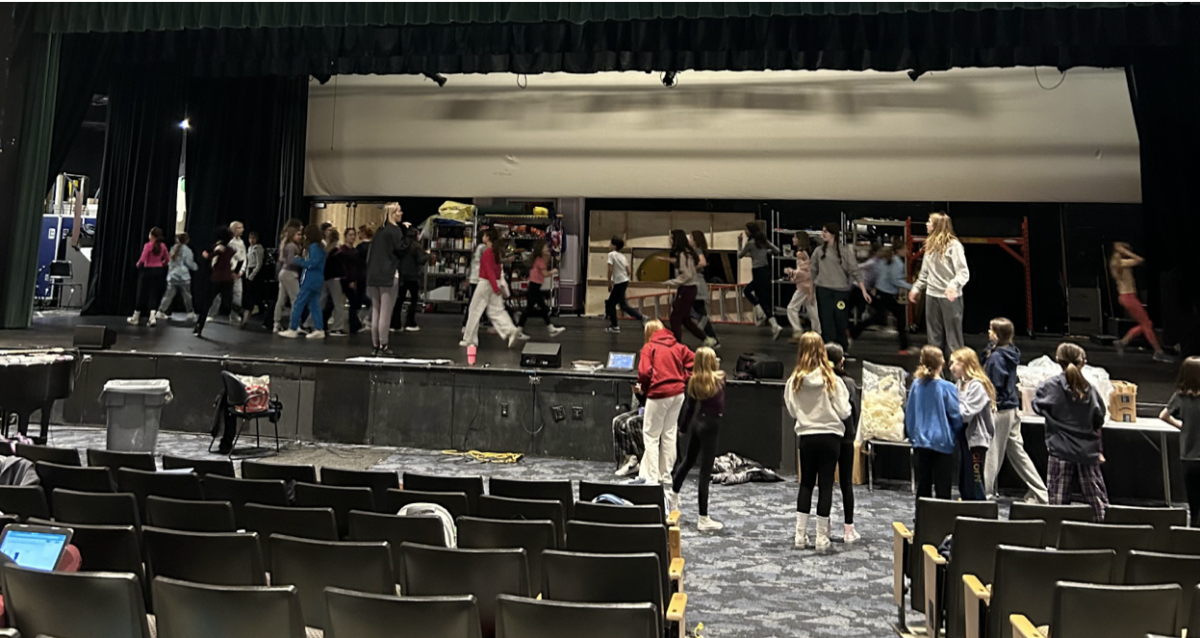
Navi Somal ’09 & Ben Klaff ’10
A&E Editor & Features Editor
Four hundred and thirty five years after his death, contemporary writers, actors and filmmakers continue to find inspiration in the works of Shakespeare. But for high school teachers, reviving an interest in Shakespeare in students remains a challenge.
Students in the Westport Public School System read Shakespeare from 8th grade through 12th grade, but many ask the question why they even read Shakespeare at all.
“Shakespeare is one of the best users of the English language and one of the things you as English students are trying to learn is how to use language persuasively and clearly. Shakespeare also explores fundamental issues of human nature that are timeless,” said English teacher Brian Tippy.
Shakespeare has been taught to English students for generations and many English Teachers, including Dr. Gerry Kuroghlian, think that Shakespeare should be taught because his themes have such a wide range of human emotion.
“Shakespeare has been read by our parents, grandparents, great-grandparents, and will continue to be read by our children, grandchildren, and great-grand children because it’s an author who’s themes are generational,” said Kuroghlian.
The Struggle’s the Thing
English teacher Heather Colletti-Houde believes that Shakespeare offers much more than an extraordinary example of the use of the English language. According to her, learning about Shakespeare “teaches students how to struggle through something and how there is a lot of joy in attacking something that is really complex.”
Although students may not recognize it immediately, themes that appear in Shakespeare’s plays such as “Romeo and Juliet” are pertinent to what teenagers experience when in a romantic relationship as well as situations they may experience as adults, said Tippy.
Language Barrier
Language has been a point of major struggle that many English teachers such as Tippy and Colletti-Houde believe can become a barrier to understanding Shakespeare’s beauty. Add a complicated plot to the mix and teachers have frustrated students.
Many teachers have developed individual techniques and lesson plans that help them get their students motivated.
Some teachers such as Tippy have students read scenes over again in class so they get the gist of the story and break down the tough words in passages at the same time.
While some English teachers dive into the literature of Shakespeare, others such as Anne Fernandez and Kristin Veenema use audio visual enhancements to heighten and better explore the different interpretations of Shakespeare’s plays.
Some have even acted out or have had students act out various scenes of a Shakespeare play in front of the entire class.
“Costumes and skits are good ways to get students past the complex language,” said Fernandez.
Cayla Yang ’09, a Shakespeare fanatic, thinks that once students overcome the language barrier they can truly enjoy the dramatic plots that Shakespeare employs.
But for many students plot only makes understanding Shakespeare more difficult. To eliminate this problem, Colletti-Houde decided to bring in supplemental texts such as “No Fear Shakespeare” for her 10B students.
“The reason why I am an advocate for ‘No Fear Shakespeare’ for some students is because Shakespeare is so different and I don’t want kids to struggle with plot and I want it to be one less thing that gets in their way of understanding,” said Colleti-Houde. “But I do not want students to use it as a crutch; they should look at ‘No Fear Shakespeare’ and ‘Sparknotes’ as just another interpretation of the text.”
Although Colleti-Houde chose to utilize “No Fear Shakespeare” in her 10B class, she does not recommend it for higher level classes because students can start to “second guess themselves and think that they don’t have the tools to do a thorough analysis of literature, when in fact they actually do.”
“You have to look at what is appropriate for different learners; if you have a tool that helps kids access the language and ideas; you have to use what is available,” said Colleti-Houde.
Interpretations
As a teacher, Veenema finds that the most enjoyable part of teaching Shakespeare is learnign something new from students; interpretations, and she believes that supplemental texts can get in the way of that.
While many students struggle with Shakespeare, there are also those that find it extremely enjoyable. Tippy’s class, for example, had a particularly good time reading “A Midsummer Night’s Dream.”
“[‘A Midsummer Night’s Dream’] is like watching an episode of ‘Friends,’ except ten times as good and four times as long,” said Tippy.
While students in the core English classes may enjoy much of what Shakespeare has to offer, they don’t have the chance to delve into his themes as much as those in Kuroghlian’s semester-long Shakespeare elective class.
“We go into much more depth and detail, and much more into the structure and sources of his plays,” said Kuroghlian.
According to Kuroghlian, his class goes into more themes relating to the religion and culture of the time in the book since they wouldn’t have time to do that in a regular English class.
In addition to studying in class, Kuroghlian’s students also go to New York to watch Shakespeare plays and look at directors’ different interpretations.
Fernandez adds that, although Shakespeare stands out as one of the greatest authors of all time, she still believes that we should not forget about others.













































